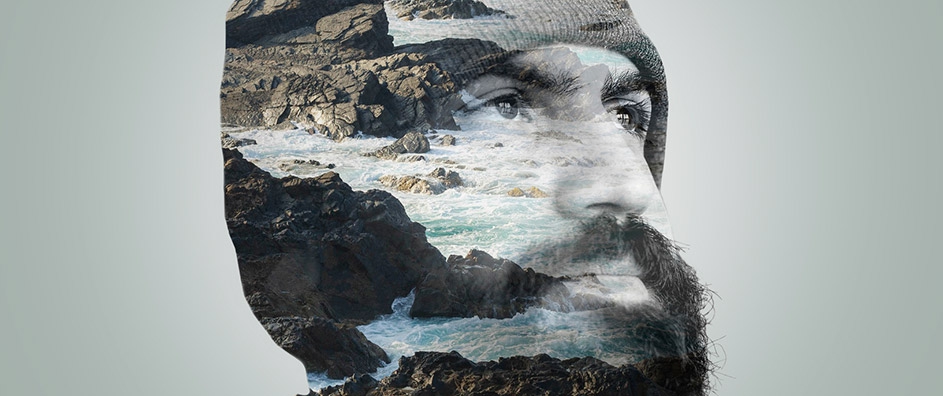The views expressed in our content reflect individual perspectives and do not represent the authoritative views of the Baha'i Faith.
If you would be a real seeker after truth, it is necessary that at least once in your life you doubt, as far as possible, all things. – Rene Descartes
There lives more faith in honest doubt, believe me, than in half the creeds. – Alfred Lord Tennyson
In most cultures and many religions, faith and doubt are opposites—but not in the Baha’i teachings. For Baha’is, doubt often serves as the foundation of faith:
…blind imitation of the past will stunt the mind. But once every soul inquireth into truth, society will be freed from the darkness of continually repeating the past. – Abdu’l-Baha, Selections from the Writings of Abdu’l-Baha, p. 248.
The Baha’i teachings strongly emphasize independent spiritual search. Baha’u’llah advises everyone to undertake a personal search for inner knowledge:
Know thou of a truth that the seeker must, at the beginning of his quest for God, enter the Garden of Search… He must search after the truth to the utmost of his ability and exertion… – Baha’u’llah, Gems of Divine Mysteries, p. 27.
An independent investigation of the truth, however, has to satisfy more than just a simply intellectual or scientific curiosity—it should also satisfy a longing seated deep in the heart. In The Tablet of the True Seeker, Baha’u’llah wrote that it takes desire, passionate devotion, and fervid love, rapture and ecstasy to truly and fully comprehend the mystical reality and the hidden mysteries of the soul:
Only when the lamp of search, of earnest striving, of longing desire, of passionate devotion, of fervid love, of rapture, and ecstasy, is kindled within the seeker’s heart, and the breeze of His loving-kindness is wafted upon his soul, will the darkness of error be dispelled, the mists of doubts and misgivings be dissipated, and the lights of knowledge and certitude envelop his being. At that hour will the mystic Herald, bearing the joyful tidings of the Spirit, shine forth from the City of God resplendent as the morn, and, through the trumpet-blast of knowledge, will awaken the heart, the soul, and the spirit from the slumber of negligence. Then will the manifold favours and outpouring grace of the holy and everlasting Spirit confer such new life upon the seeker that he will find himself endowed with a new eye, a new ear, a new heart, and a new mind. He will contemplate the manifest signs of the universe, and will penetrate the hidden mysteries of the soul. Gazing with the eye of God, he will perceive within every atom a door that leadeth him to the stations of absolute certitude. He will discover in all things the mysteries of divine Revelation and the evidences of an everlasting manifestation. – Baha’u’llah, The Book of Certitude, pp. 195-196.
Would you like to awaken your heart, soul and spirit, and “discover in all things the mysteries of divine revelation?” That process, the Baha’i teachings say, begins with the seeker’s doubt:
God has not intended man to blindly imitate his fathers and ancestors. He has endowed him with mind or the faculty of reasoning by the exercise of which he is to investigate and discover the truth; and that which he finds real and true, he must accept. He must not be an imitator or blind follower of any soul. He must not rely implicitly upon the opinion of any man without investigation; nay, each soul must seek intelligently and independently, arriving at a real conclusion and bound only by that reality. – Abdu’l-Baha, Foundations of World Unity, pp. 73-74.
This kind of independent investigation has a mystical ingredient that brings with it a happy, joyful and even astonished sense of discovery and wonder. It offers us a “trumpet-blast of knowledge,” and favors us with “a new eye, a new ear, a new heart, and a new mind.” It increases our awareness, opens our hearts and widens our perceptions.
When all of these things coincide, we can achieve a new level of spiritual growth. Baha’u’llah’s assurances in The Tablet of the True Seeker confirm it: at that hour “will the darkness of error be dispelled, the mists of doubts and misgivings be dissipated, and the lights of knowledge and certitude envelop his being.”
This transformative process, Baha’u’llah’s tablet seems to say, involves not only the seeker but a force he calls “the mystic Herald” and “the holy and everlasting Spirit.” This passage from the tablet suggests that a true seeker, once he lights the lamp of search, summons the animating forces that allow access to a higher and more spiritual source. The search itself allows the seeker to receive a new spirit, to truly hear the divine melody:
Let us seek the song with the sweetest strains, so that it may be taken up by the angels and carried to the supreme concourse. Let us hearken to the melody which will stir the world of humanity, so that the people may be transformed with joy.
Let us listen to a symphony which will confer life on man; then we can obtain universal results; then we shall receive a new spirit; then we shall become illumined. Let us investigate a song which is above all songs; one which will develop the spirit and produce harmony and exhilaration, unfolding the inner potentialities of life. – Abdu’l-Baha, Divine Philosophy, p. 77.
Next: Insight: Wealth without Gold, and Immortality without Death
You May Also Like
Comments

















healthy thing if dealt with in the right
way. It can keep us receptive and
hungry for truth. If we respond by
seeking self-assurance and peace of mind for their own sake, though, we
have lost our way; that can lead to
dogmatism and bluster. Because
our ego can so easily enter into even
our search for scientific or spiritual
truth, in the end it can become self-
doubt that we need the most; I think
that is why the Baha'i Writings say to
call ourselves to account every ...day,
to keep us vigilant to the ego.
And I really like your thought that doubt can keep one hungry for truth. The idea that truth and doubt go hand in hand is a comforting one.